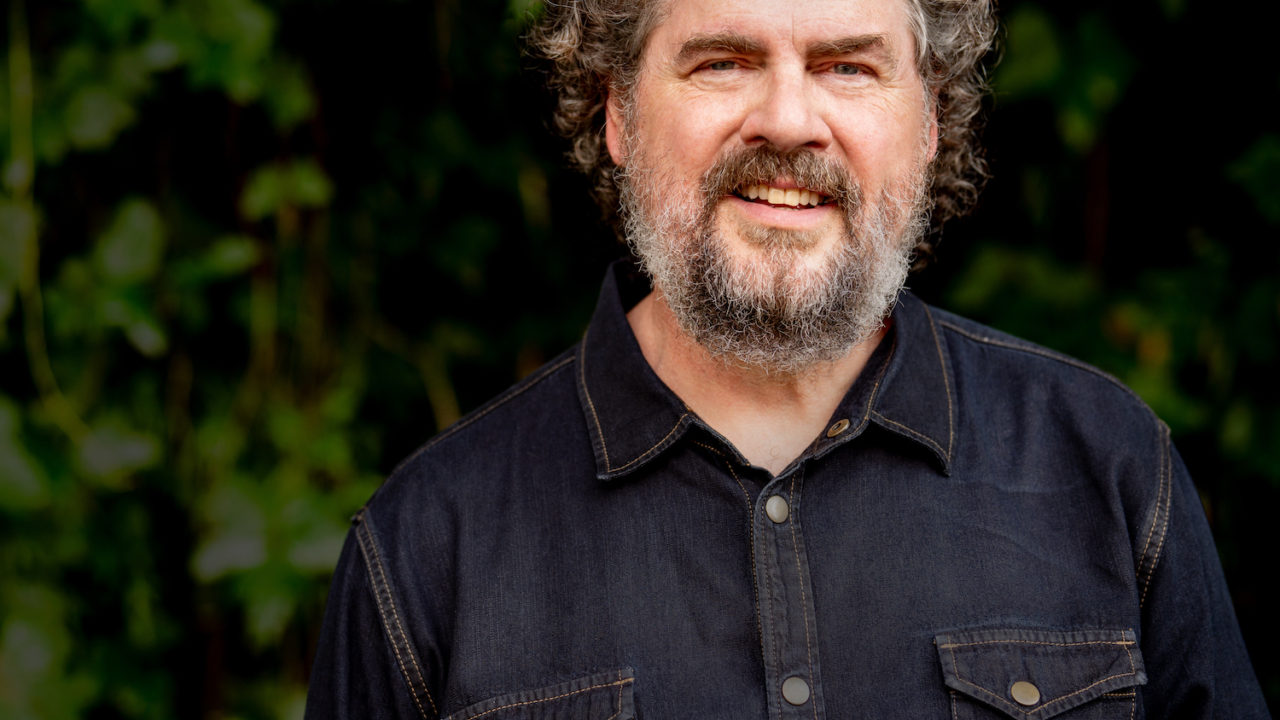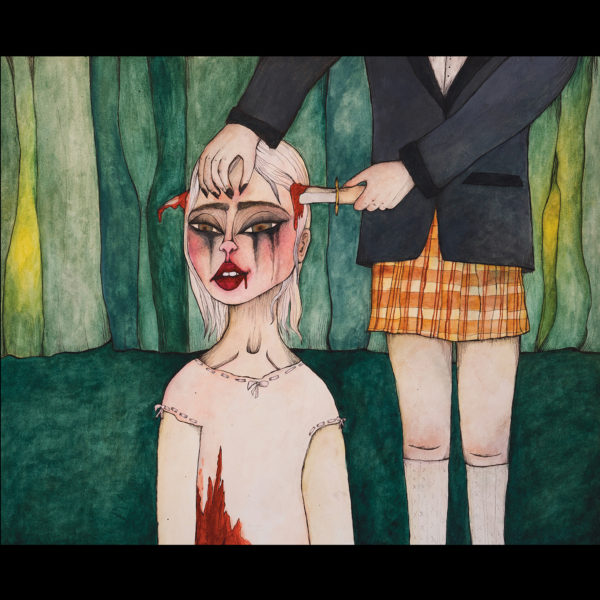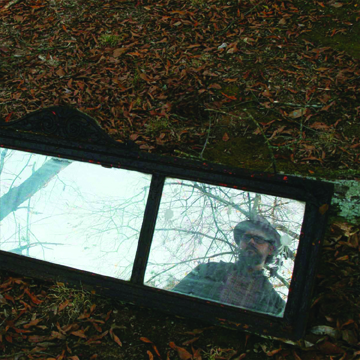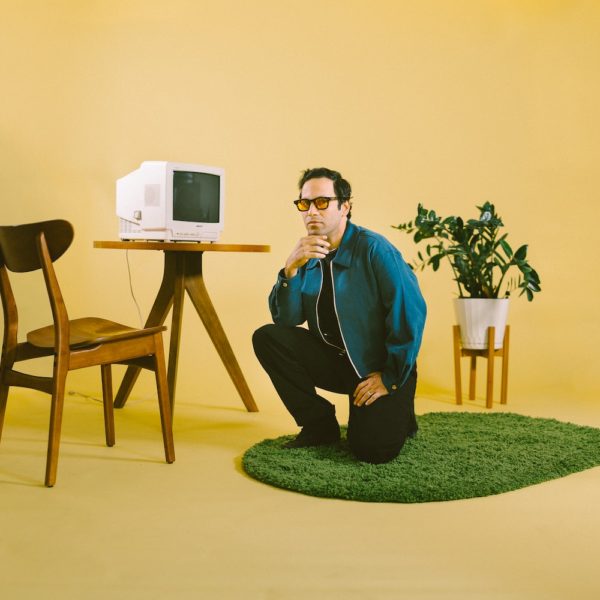
Patterson Hood
Drive-By Truckers co-founder Patterson Hood’s fourth solo album and first in over 12 years, Exploding Trees & Airplane Screams sees the veteran singer, guitarist, and songwriter exploring his youth and young manhood in a collection unlike anything in his ever-evolving catalogue. A baroque American song cycle spanning the time between early childhood and leaving his rural hometown in search of his musical dreams, the album gathers songs that have amassed over the remarkably prolific songwriter’s career, many of which provided him with distraction and creative sustenance during lockdown, others which have resided among his notebooks for years. Songs like “The Van Pelt Parties” (featuring members of “my favorite new band,” Wednesday) and “At Safe Distance” are fueled by finely drawn character studies and Hood’s well-honed gift for clear-eyed self-examination, looking at crucial memories and life experiences to process the moments that saw him coalesce into his adult self.
“This record has all these kinds of unintended themes,” Hood says. “It’s all subconscious, because I didn’t really set out with an agenda, writing-wise. It really just kind of occurred to me when I was actually putting it all together, just how much it seems to have a theme to it.”
The dozen years since his last extracurricular outing, 2012’s Heat Lightning Rumbles in the Distance, had seen Hood accumulate a cache of material which did not quite fit into the Drive-By Truckers canon, songs which he set aside for “if and when” he got around to another solo project. Kept off the road during the 2020 lockdown, he found himself recording demos in his Portland, OR attic, without a clear plan but thinking “maybe this might be worth pursuing at some point.”
Hood had moved to Portland with his family in 2013 and swiftly found a place among the Rose City’s thriving music scene, including a friendship forged with producer/musician Chris Funk (The Decemberists). Having long discussed collaborating, in 2023 the two artists’ typically stacked calendars finally allowed them the opportunity to team up and they set to work recording what Hood intended to be “a bigger departure” from Drive-By Truckers and his previous solo efforts than ever before.
“The band has been in such a good place that I hadn’t really thought in terms of doing anything outside of the Truckers anytime soon,” Hood says. “I decided if I ever was going to do another solo record, I wanted it to be pretty different than the band, as different as it can be.”
Working largely at a number of Portland studios, Hood accomplished his goal, in part by writing much of the album on piano in a vigorous attempt to expand his parameters in new, heretofore uncharted, directions. While he planned to bring in a professional pianist for the recording sessions, Funk, eager to push his friend from his comfort zone, encouraged Hood to play the parts himself.
“I wanted to get good enough on piano to where I could use it as a songwriting tool and that’s basically what I did,” he says. “My plan was to bring in somebody for the record that actually knew how to play the damn thing. But then Chris Funk informed me, ‘By the way, I hope you’re practicing piano, because you’re going to be playing it on your record.’ And I’m like, ‘No, I’m not.’ ‘I like your piano playing,’ he said, ‘I’m the producer and I want you to play the piano on it. So maybe practice some so that it’ll be good.’ I was terrified, all the way up to the night before we started recording. I couldn’t sleep, I was so nervous about going in and playing piano in the studio. But then, when I actually did it, it was alright. Like I said, I’m no piano player, I’m not doing anything super fancy, but I actually did it pretty efficiently. It didn’t take a whole lot of time, it all came together and was pretty solid.
“In retrospect, Chris practiced a little of what he was preaching, because I could hardly get him to play any guitar on the record, he mostly played keyboards. I had figured he’d play a bunch of guitar, he’s such an amazing player and he plays very differently than any of the guitar players I play with, but he was pretty dead set on not really playing much at all.”
Hood further took the occasion to explore sounds outside the boundaries and obligations of his day job, deviating from Drive-By Truckers’ traditionally guitar-driven palette to craft richly textured arrangements marked by the inclusion of strings, woodwinds, and vintage analog synthesizers.
“There’s really not a lot of guitar work on this album,” he says. “I’m only playing electric on a few things. That was fun too, because, I’m in a really kickass guitar band so it’s great to do something outside of that. Everything ultimately suited the project. It’s not like these decisions were made just for the sake of it. There was a point to it, for sure.”
Auxiliary backing was provided by a stellar cast of friends and musicians including fellow Alabama native Katie Crutchfield (Waxahatchee), Brad and Phil Cook (Megafaun), Kevin Morby, Wednesday, Steve Berlin (Los Lobos, The Blasters), Brad Morgan and Jay Gonzalez (Drive-By Truckers), David Barbe (Sugar, Mercyland), Nate Query (The Decemberists), Steve Drizos (Jerry Joseph and The Jackmormons), Daniel Hunt (Neko Case, M Ward), and Stuart Bogie (The Hold Steady, Goose).
“I was really moved by some of the people that were willing to apply their talents to it,” says Hood. “There are people that play on this that I’ve been a huge fan of for a long time, and for them to be a part of a record I made is a big honor to me. I made a wish list of people that I would love to be on this record, and I was kind of blown away that with the vast majority of them, it worked out.”
But as Hood says, “Everything was built around the songs.” To some extent, he notes, the album moves backwards in time, with “The Exploding Trees” being the most contemporary event in the timeline of the record, inspired in part by Hood’s own short story chronicling a natural disaster that occurred in his North Alabama hometown just as he turned 30 and relocated to Athens, GA where Drive-By Truckers were co-founded in 1996. Hood then traverses his childhood and coming of age, reminiscing about his godmother (“Miss Coldiron’s Oldsmobile”) and first love (“A Werewolf and a Girl,” featuring duet vocals from Lydia Loveless), before the album culminates with a remarkable pair of closing songs that includes the string-driven “Airplane Screams,” penned over four decades ago but never successfully recorded until now.
“Airplane Screams” was written when I was 20 years old,” Hood says. “We actually worked up a version of it at the very end of Adam’s House Cat – which was mine and (Drive-By Truckers co-founder Mike) Cooley’s first band – but we never even played another show after we worked it up. At one point the Truckers tried it, but I don’t think we ever played it out either. We recorded a not-particularly-good version of it for an early draft of what became Southern Rock Opera, but it got abandoned. So, it was kind of nice to finally give that song a home, because I always liked it, but I felt like it needed a different approach this time.”
Exploding Trees & Airplane Screams is crowned with what Hood considers among his proudest achievements, “Pinocchio.” The deeply contemplative country ballad perhaps sums up Hood’s overall mission with the album. “It’s a whale of a tale, with so many miles to go,” he sings. “But I get a little closer each day to my long-term goal.”
“I’ve been wondering what drew me to that story,” he says. “Obviously, I was first exposed to it through the 1940 Disney cartoon version. Disney re-released the cartoon that summer, when I was seven, right after first grade. I got my grandmother and my uncle to take me, over and over. So, I ended up seeing it a bunch of times in the couple of weeks it was in town, to the extent that I kind of memorized it. I would act it out in the backyard at my grandmother’s, which, you know, further made me the weird kid in the neighborhood.
“As I’ve gotten older, I’ve thought about certain things. The Blue Fairy looks a lot like my grandmother, who was kind of my protector growing up. She very much raised me and my sister. My great uncle was sort of a Geppetto character. I spent every weekend of my childhood with him until I was driving age. He lived out on a farm and worked as a truck driver during the week, then he would come home for the weekends, and I would stay out there with him, I mean, literally, every single weekend from the time I was an infant until I was probably 15. He never married, never had kids of his own, so I was kind of his real live boy. None of that really dawned on me until long after I’d even written the song.
“I’m particularly proud of that song,” he adds. “I think it’s probably one of the best pieces of writing I’ve ever done. It’s kind of nice for it to be the last word on the record, coming right after the oldest song on the record.”
With its powerful textural clarity and Hood’s literary strengths at the fore, Exploding Trees & Airplane Screams emerges as a staggering investigation into how time can shed light on the recesses of memory, revealing this exceptionally gifted songwriter’s resolute inclination to look back through the golden haze to grapple with the darkness and secret truths that perhaps weren’t understood or reckoned with at the time. As he has throughout his career – from Drive-By Truckers’ ceaseless investigation into American values and culture to his solo body of work’s autobiographical meditations – Exploding Trees and Airplane Screams sees Patterson Hood once again stripping away the facade of things to get to the core, lifting up life’s rock to see what lies underneath.
“You remember things one way,” he says, “but when you really dip into it, when you really look back, the world was a different place. Things were accepted that wouldn’t be accepted now and things you didn’t understand then make sense now.
“I don’t know if there was anything I set out to do on this record as much as it just kind of worked out that way. You know, there are a lot a lot of happy accidents in this record.”



